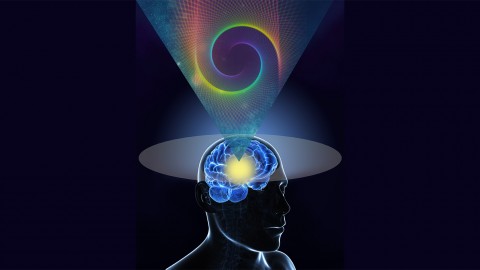Eating disorders are serious conditions related to persistent eating behaviors that negatively impact your health, your emotions and your ability to function in important areas of life. The most common eating disorders are anorexia nervosa, bulimia nervosa and binge-eating disorder.
Most eating disorders involve focusing too much on your weight, body shape and food, leading to dangerous eating behaviors. These behaviors can significantly impact your body’s ability to get appropriate nutrition. Eating disorders can harm the heart, digestive system, bones, and teeth and mouth, and lead to other diseases.
Eating disorders often develop in the teen and young adult years, although they can develop at other ages. With treatment, you can return to healthier eating habits and sometimes reverse serious complications caused by the eating disorder.
Symptoms
Symptoms vary, depending on the type of eating disorder. Anorexia nervosa, bulimia nervosa and binge-eating disorder are the most common eating disorders. Other eating disorders include rumination disorder and avoidant/restrictive food intake disorder.
Anorexia Nervosa
Anorexia (an-o-REK-see-uh) nervosa – often simply called anorexia – is a potentially life-threatening eating disorder characterized by an abnormally low body weight, intense fear of gaining weight, and a distorted perception of weight or shape. People with anorexia use extreme efforts to control their weight and shape, which often significantly interferes with their health and life activities.
When you have anorexia, you excessively limit calories or use other methods to lose weight, such as excessive exercise, using laxatives or diet aids, or vomiting after eating.
Efforts to reduce your weight, even when underweight, can cause severe health problems, sometimes to the point of deadly self-starvation.
Bulimia Nervosa
Bulimia (boo-LEE-me-uh) nervosa – commonly called bulimia – is a serious, potentially life-threatening eating disorder. When you have bulimia, you have episodes of bingeing and purging that involve feeling a lack of control over your eating. Many people with bulimia also restrict their eating during the day, which often leads to more binge eating and purging.
During these episodes, you typically eat a large amount of food in a short time, and then try to rid yourself of the extra calories in an unhealthy way. Because of guilt, shame and an intense fear of weight gain from overeating, you may force vomiting or you may exercise too much or use other methods, such as laxatives, to get rid of the calories.
If you have bulimia, you’re probably preoccupied with your weight and body shape, and may judge yourself severely and harshly for your self-perceived flaws. You may be at a normal weight or even a bit overweight.
Binge-Eating Disorder
When you have binge-eating disorder, you regularly eat too much food (binge) and feel a lack of control over your eating. You may eat quickly or eat more food than intended, even when you’re not hungry, and you may continue eating even long after you’re uncomfortably full.
After a binge, you may feel guilty, disgusted or ashamed by your behavior and the amount of food eaten. But you don’t try to compensate for this behavior with excessive exercise or purging, as someone with bulimia or anorexia might. Embarrassment can lead to eating alone to hide your bingeing.
A new round of bingeing usually occurs at least once a week. You may be normal weight, overweight or obese.
Rumination Disorder
Rumination disorder is repeatedly and persistently regurgitating food after eating, but it’s not due to a medical condition or another eating disorder such as anorexia, bulimia or binge-eating disorder. Food is brought back up into the mouth without nausea or gagging, and regurgitation may not be intentional. Sometimes regurgitated food is rechewed and re-swallowed or spit out.
The disorder may result in malnutrition if the food is spit out or if the person eats significantly less to prevent the behavior. The occurrence of rumination disorder may be more common in infancy or in people who have an intellectual disability.
Avoidant/Restrictive Food Intake Disorder
This disorder is characterized by failing to meet your minimum daily nutrition requirements because you don’t have an interest in eating; you avoid food with certain sensory characteristics, such as color, texture, smell or taste; or you’re concerned about the consequences of eating, such as fear of choking. Food is not avoided because of fear of gaining weight.
The disorder can result in significant weight loss or failure to gain weight in childhood, as well as nutritional deficiencies that can cause health problems.
- Skipping meals or making excuses for not eating
- Adopting an overly restrictive vegetarian diet
- Excessive focus on healthy eating
- Making own meals rather than eating what the family eats
- Withdrawing from normal social activities
- Persistent worry or complaining about being fat and talk of losing weight
- Frequent checking in the mirror for perceived flaws
- Repeatedly eating large amounts of sweets or high-fat foods
- Use of dietary supplements, laxatives or herbal products for weight loss
- Excessive exercise
- Calluses on the knuckles from inducing vomiting
- Problems with loss of tooth enamel that may be a sign of repeated vomiting
- Leaving during meals to use the toilet
- Eating much more food in a meal or snack than is considered normal
- Expressing depression, disgust, shame or guilt about eating habits
- Eating in secret
Causes
The exact cause of eating disorders is unknown. As with other mental illnesses, there may be many causes, such as:
- Genetics and biology. Certain people may have genes that increase their risk of developing eating disorders. Biological factors, such as changes in brain chemicals, may play a role in eating disorders.
- Psychological and emotional health. People with eating disorders may have psychological and emotional problems that contribute to the disorder. They may have low self-esteem, perfectionism, impulsive behavior and troubled relationships.
Risk Factors
Teenage girls and young women are more likely than teenage boys and young men to have anorexia or bulimia, but males can have eating disorders, too. Although eating disorders can occur across a broad age range, they often develop in the teens and early 20s.
Certain factors may increase the risk of developing an eating disorder, including:
Family history. Eating disorders are significantly more likely to occur in people who have parents or siblings who’ve had an eating disorder.
Other mental health disorders. People with an eating disorder often have a history of an anxiety disorder, depression or obsessive-compulsive disorder.
Dieting and starvation. Dieting is a risk factor for developing an eating disorder. Starvation affects the brain and influences mood changes, rigidity in thinking, anxiety and reduction in appetite. There is strong evidence that many of the symptoms of an eating disorder are actually symptoms of starvation. Starvation and weight loss may change the way the brain works in vulnerable individuals, which may perpetuate restrictive eating behaviors and make it difficult to return to normal eating habits.
Stress. Whether it’s heading off to college, moving, landing a new job, or a family or relationship issue, change can bring stress, which may increase your risk of an eating disorder.
- Serious health problems
- Depression and anxiety
- Suicidal thoughts or behavior
- Problems with growth and development
- Social and relationship problems
- Substance use disorders
- Work and school issues
- Death Prevention
Although there’s no sure way to prevent eating disorders, here are some strategies to help your child develop healthy-eating behaviors:
- Avoid dieting around your child. Family dining habits may influence the relationships children develop with food. Eating meals together gives you an opportunity to teach your child about the pitfalls of dieting and encourages eating a balanced diet in reasonable portions.
- Talk to your child. For example, there are numerous websites that promote dangerous ideas, such as viewing anorexia as a lifestyle choice rather than an eating disorder. It’s crucial to correct any misperceptions like this and to talk to your child about the risks of unhealthy eating choices.
- Cultivate and reinforce a healthy body image in your child, whatever his or her shape or size. Talk to your child about self-image and offer reassurance that body shapes can vary. Avoid criticizing your own body in front of your child. Messages of acceptance and respect can help build healthy self-esteem and resilience that will carry children through the rocky periods of the teen years.
- Enlist the help of your child’s doctor. At well-child visits, doctors may be able to identify early indicators of an eating disorder. They can ask children questions about their eating habits and satisfaction with their appearance during routine medical appointments, for instance. These visits should include checks of height and weight percentiles and body mass index, which can alert you and your child’s doctor to any significant changes
Homoeopathic Treatment
1. Arsenicum alb. – Extreme fastidiousness especially about germs and dirt. Anorexia coupled with fear of being poisoned. Fear of getting certain diseases so they starve.
2. Carcinosin – Obsessive compulsive disorder. Perfectionism, fear of becoming fat, fear of rejection. Etiology: abuse, grief or fears, often related to weight. Chronic insomnia, workaholics.
3. Hyoscyamus – Anorexia plus mania, insanity, fear of being poisoned. Could have pathological jealousy, over concern about weight and getting fat.
4. Ignatia – Perfectionism, fear of becoming fat, fear of rejection. Hysteria – loss of control of emotions, fainting. Etiology: grief or big disappointment, often related to weight.
5. Natrum mur. – Most often indicated remedy in anorexia, a lot of guilt. Fear of being rejected, hurt easily, very self conscious. Dry lips, emaciated, dry skin, constipated, loose appetite. Behind this is perfectionism and fear of becoming fat. Nat mur have more confidence.
6. Phosphoric acid – Etiology: grief with loss of appetite with emaciation, pining away from loss of love, second stage they get indifferent to all emotions and food. Deadness inside (Sepia, Aurum met). Grief – anorexia than some chronic disease.
7. Platina met. – Obsessed with their appearance, fear of becoming fat. Very obsessive and impulsive personality, egocentric and arrogant, all tied up with their sexuality, religious mania.
8. Pulsatilla – Feeling of worthlessness, unloved, loneliness, fixed ideas about. Food, especially certain foods are bad, then the amount of foods that are bad grows, fear of gaining weight, pulsatilla’s gain weight easily, they can eat a pastry and swear they gained weight. Ignatia, Puls. and Nat. mur. are constantly weighing themselves. Scanty menses.
9. Sepia – Anorexia plus hormonal problems, nausea, sensitivity to smell. Disgust for food, worse since childbirth, hormones cause a lack of appetite.
10. Staphysagria – Acute of Carcinosin, more visible, visibly upset. Carcinosin can control it more, Staph. may it be more. Deep sense of worthlessness and depression, even suicidal. Humiliation, mortified, put down, criticized, zero confidence.
11. Tarentula – Mania could be religious mania. Underneath you have a fear of being poisoned. Obsessiveness about weight, very restless and hyper energy people, they do everything fast – talk, move.
12. Thuja occid. – Fear of being impure, dirty blood, anxiety about health, obsessed with the idea of having to clean themselves out.
13. Veratrum alb. – Religious mania, loquacious, the end of the world is coming. Punish themselves, fast to appease god. Behind this you see guilt
Tags: Eating Disorder And Homoeopathy










